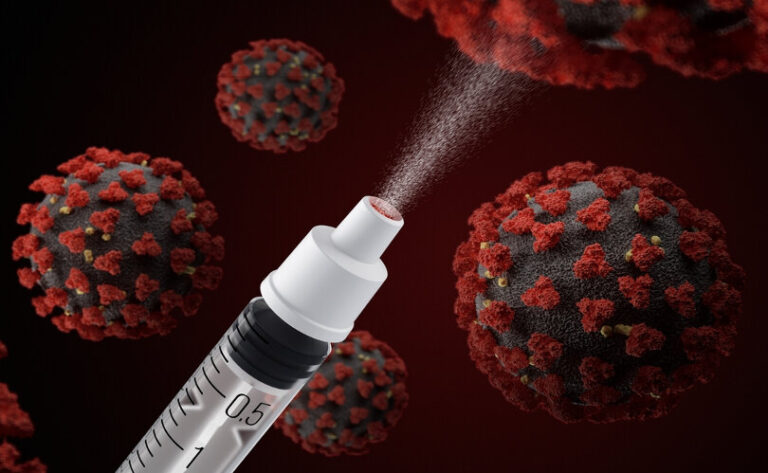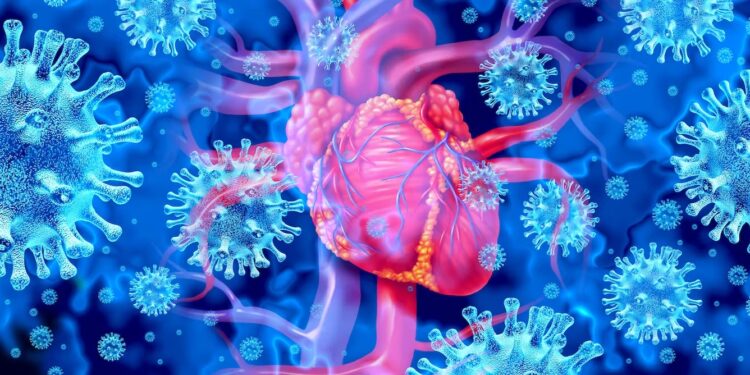Diminished COVID-19 Vaccine Protection Observed in Nearly Half of Lung Disease Cases, Study Shows

A new study conducted by National Jewish Health with 63 participants has raised concerns about the efficacy of the COVID-19 vaccine in patients with chronic lung diseases. The vaccine’s efficacy has primarily been studied in healthy populations, leaving a gap in understanding its impact on those with respiratory issues.
“Most of the studies for the COVID vaccine have focused on how well the vaccine protects healthy people,” said R. Lee Reinhardt, senior study author and doctorate holder in microbiology, immunology, and cancer biology, in a press release. “There is not a lot of data available to know if it protects people with respiratory conditions the same way.”
This distinction is especially important in light of the increased vulnerabilities associated with lung diseases. Notably, people with chronic obstructive pulmonary disease (COPD) have a COVID-19 mortality rate that is twice as high as those without the condition. Furthermore, common immunosuppressant medications such as prednisone, which is frequently prescribed to treat lung conditions, may impair the body’s ability to respond effectively to the vaccine.
The Research
The study’s primary goal was to compare the immune response to the COVID-19 vaccine in people with lung diseases to healthy people. The study concentrated on antibodies as well as critical immune cells known as B and T cells. They studied blood samples from 63 people, including those with asthma, COPD, and interstitial lung disease (ILD), using samples from the National Jewish Health Biobank.
The study discovered that nearly half of those with lung conditions (48%) had decreased antibody responses months after vaccination. This is in contrast to the “hybrid immunity” seen in healthy people, where prior exposure to SARS-CoV-2 increases the vaccine’s effectiveness. Immunity in patients with lung disease appeared to decline as early as three to four months after vaccination.
In an email to The Epoch Times, Dr. Gilman B. Allen, chief of critical care at the University of Vermont Medical Center, commented on these findings. Recognizing the team’s stature, he stated, “They are affiliated with one of the top pulmonary disease labs in the country.” Dr. Allen, on the other hand, expressed reservations about the study’s scope and cautioned against drawing firm conclusions based on the small sample size.
Dr. Allen noted in the email that, unlike the healthy subjects, many of the lung disease participants were on immunosuppressive drugs. He speculated that if these findings were replicated in larger studies, they could reveal how drugs such as prednisone and biologics affect the vaccine’s immune response.
Rethinking the Vaccination Approach
The growing likelihood of routine COVID-19 vaccinations is causing a rethinking of current immunization strategies. Recent research suggests that a tailored approach may be beneficial for people with chronic lung diseases or those undergoing immunosuppressive therapies, challenging the widely accepted one-size-fits-all vaccine model.
The authors of the study warned against generalizing their findings due to the study’s small sample size, emphasizing that “… efficacy of the vaccine and vaccine-induced immunity in healthy individuals should not be uniformly extrapolated to individuals with chronic lung disease.”
Mr. Reinhardt noted the virus’s unpredictable nature, saying, “COVID-19 is still around, and we don’t know what the future holds.” There may be a winter surge, and we must learn how the immune response affects everyone, not just healthy people.”
Dr. Allen stated, “At the moment, these findings will not change my recommendations on COVID-19 vaccination schedules or methods, particularly for patients with asthma, COPD, or ILD.”





